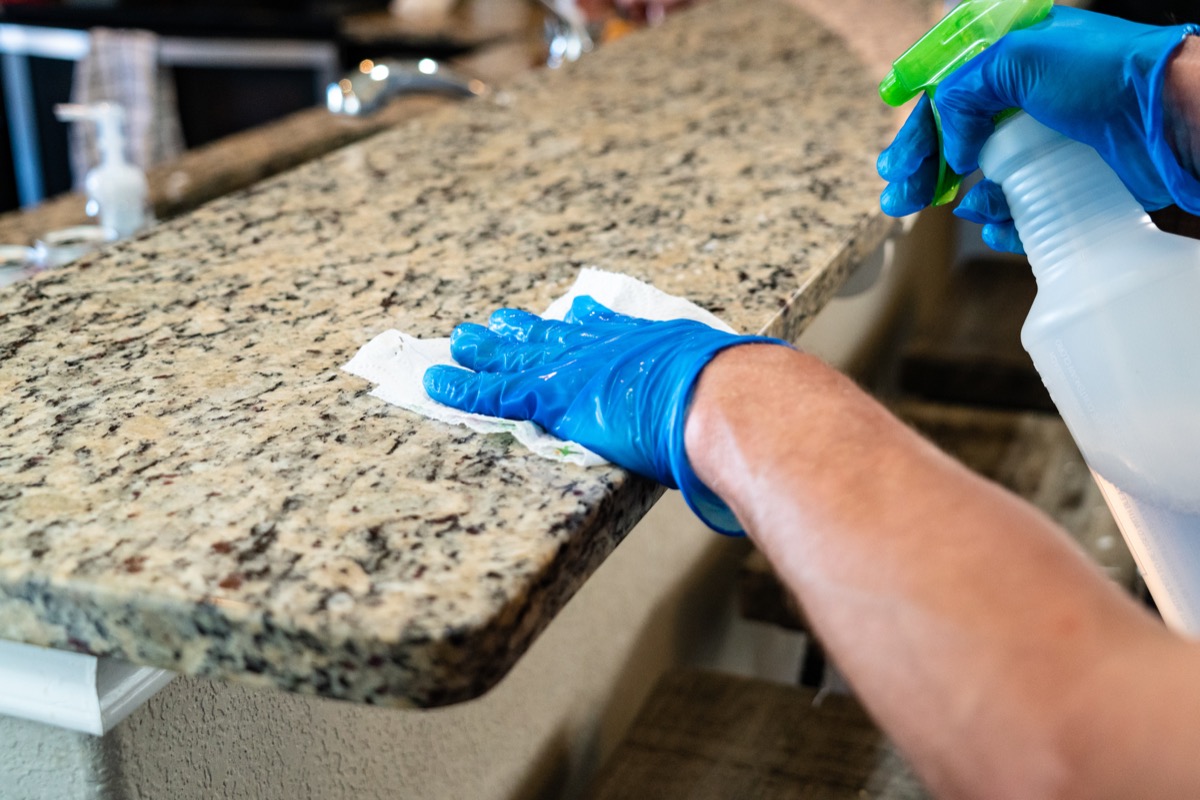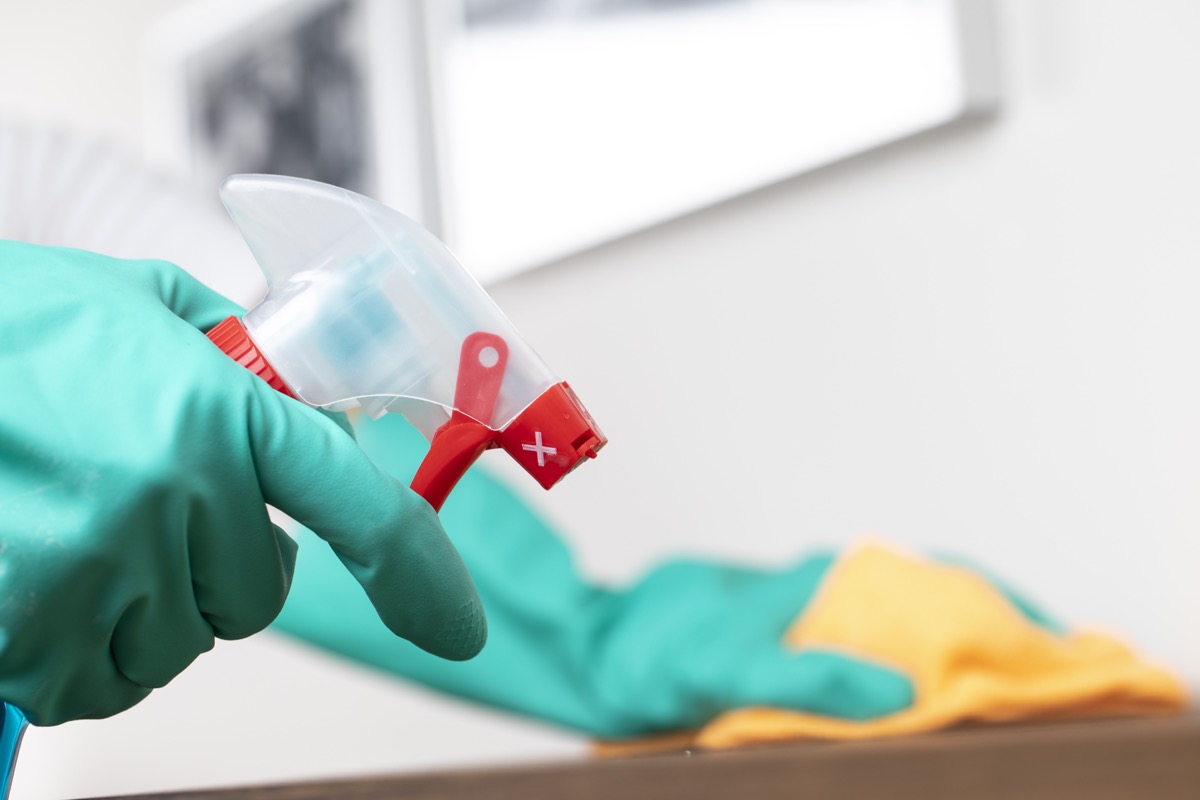While bleach may be your best friend when cleaning dirty bathrooms, you shouldn’t use it on your kitchen countertops, no matter what they’re made of. The same powerful chemicals in bleach that battle germs can also ruin your counters’ coating. “Bleach is a very strong cleaning agent and has the ability to eat through your stone countertops’ protective sealant,” says cleaning consultant Dean Davies of Fantastic Cleaners in London.ae0fcc31ae342fd3a1346ebb1f342fcb Worn down sealant is a problem on its own, but the issue gets more complicated if you don’t realize the seal has been compromised because then the bleach can ruin the stone, wood, or laminate itself, explains Davies. He also points out that bleach can cause discoloration on laminate or wood countertops. So, before wiping or spraying down your countertops, be sure to check if the product you’re using contains bleach. To make sure you’re not making another common cleaning faux pas, check out 23 Common Cleaning Mistakes That Experts Say Actually Ruin Your Home. To ensure that you don’t damage your countertops in the process of trying to keep them clean, you need to make sure you’re using the right product. Justin Carpenter, owner of Modern Maids in Austin, Texas, suggests using cleaners specifically formulated for your countertop material. According to Kitchn, if you have butcher block countertops, you should clean them with a solution of water and undiluted white vinegar. Meanwhile, for marble, granite, quartz, and laminate countertops, soap and water also work perfectly. For more helpful cleaning tips, check out 23 Cleaning Tips From the CDC You Need to Follow. Bleach isn’t the only product you should keep away from your countertops, either. “Other cleanings products that can ruin your counters include homemade ’natural’ cleaners that contain lemon, orange, or vinegar. The acids are harmful to the counters,” explains Carpenter. Specifically, this is an issue with natural stone, like granite or marble. Davies notes that a good way to know whether a product can harm your countertops is by looking at the pH level. “Whether it is natural, artificial, or homemade, anything [that’s not] neutral pH can harm your granite in a way,” says Davies. A neutral pH is 7, while anything below is acidic and anything above is alkaline. And for more useful information delivered straight to your inbox, sign up for our daily newsletter. Bleach is highly effective at disinfecting surfaces and killing germs, but even on areas aside from your countertops, it isn’t necessary during your daily cleaning. The Centers for Disease Control and Prevention (CDC) just updated its guidance on cleaning and disinfecting to prevent the spread of COVID. The only time that disinfecting surfaces is advisable now, according to the new CDC guidance, is “in indoor settings, schools, and homes where there has been a suspected or confirmed case of COVID-19, within the last 24 hours,” CDC director Rochelle Walensky, MD, said during a White House COVID-19 Response Team briefing on April 5. “In most situations, regular cleaning of surfaces with soap and detergent, not necessarily disinfecting the surfaces, is enough to reduce the risk of COVID-19 spread,” said Walensky. So do away with the harsh chemicals of bleach that can damage your countertops and stick to good old-fashioned soap and water to keep your home sparkling and germ-free. And for some other items to add to your to-do list, here are 20 Things in Your Home You Didn’t Realize You Should Be Cleaning.



